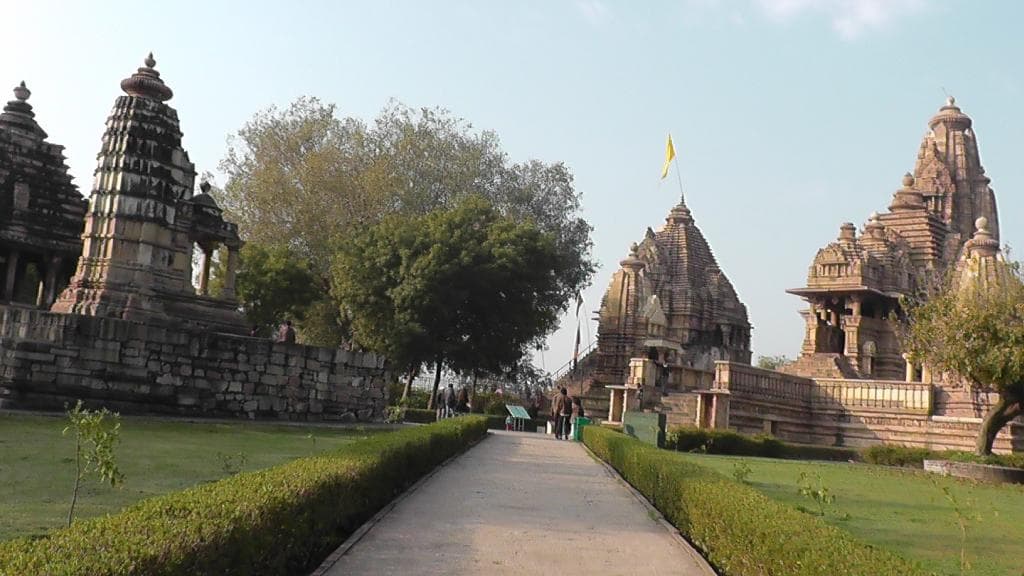
Varaha Shrine
A monumental monolithic sculpture of Vishnu's Varaha avatar, intricately carved with hundreds of deities and beings, showcasing Chandela artistry.
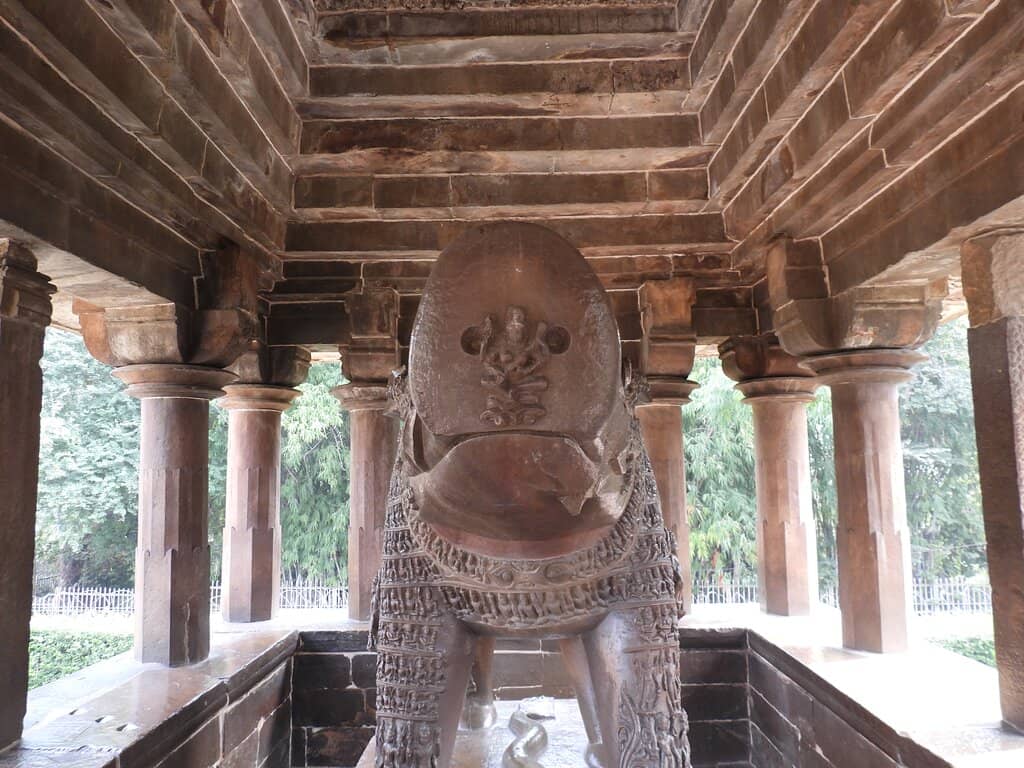
Highlights
Must-see attractions
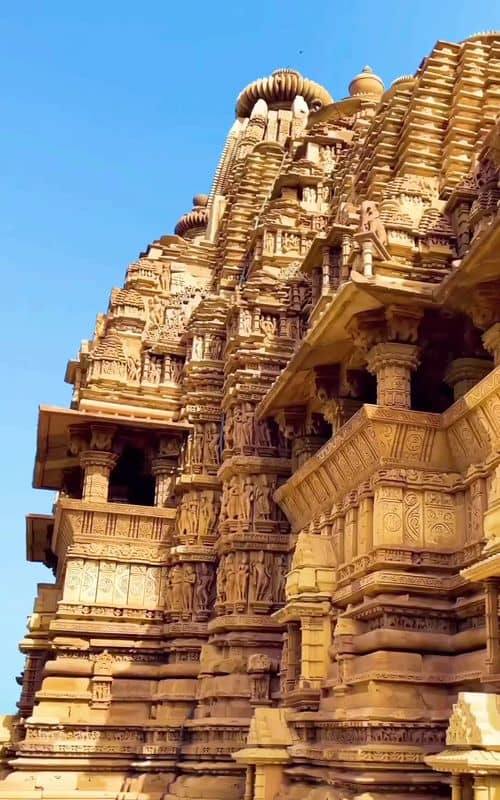
Social
From TikTok & Reddit
Best Time
Pleasant weather, fewer crowds

Varaha Shrine
Best Time
Pleasant weather, fewer crowds

Highlights
Must-see attractions
A monumental monolithic sculpture of Vishnu's Varaha avatar, intricately carved with hundreds of deities and beings, showcasing Chandela artistry.
"The Varaha Shrine's colossal sculpture is a breathtaking masterpiece of ancient Indian art and devotion."
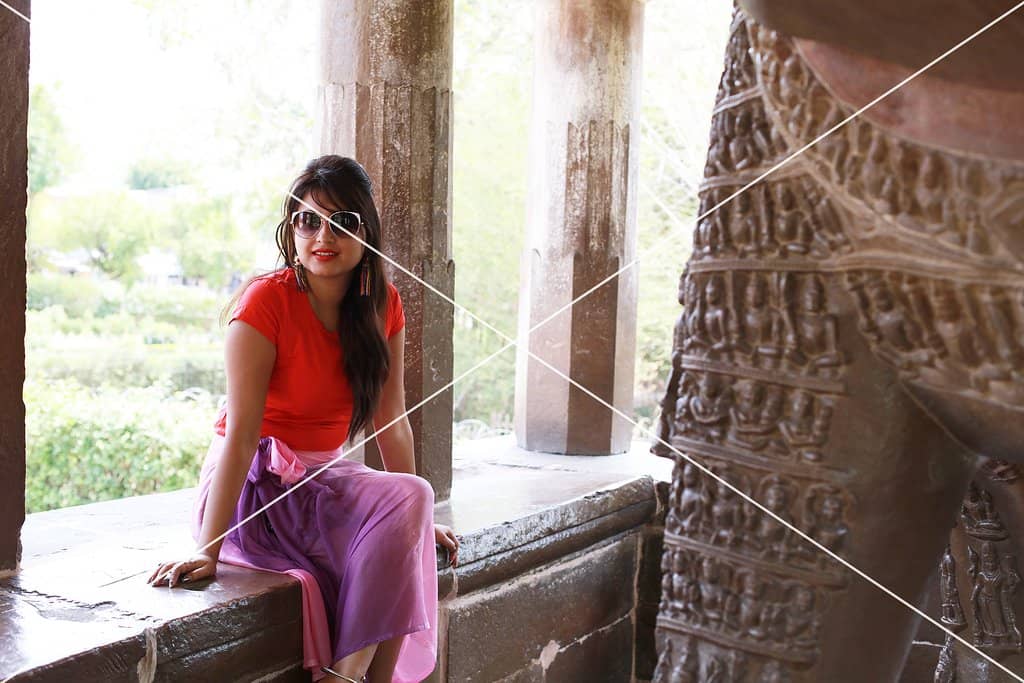
Wear Comfortable Shoes
You'll be doing a lot of walking around the Khajuraho complex. :athletic_shoe:
Hire a Guide
A knowledgeable guide can bring the history and mythology of the Varaha Shrine and other Khajuraho temples to life. :man_detective:
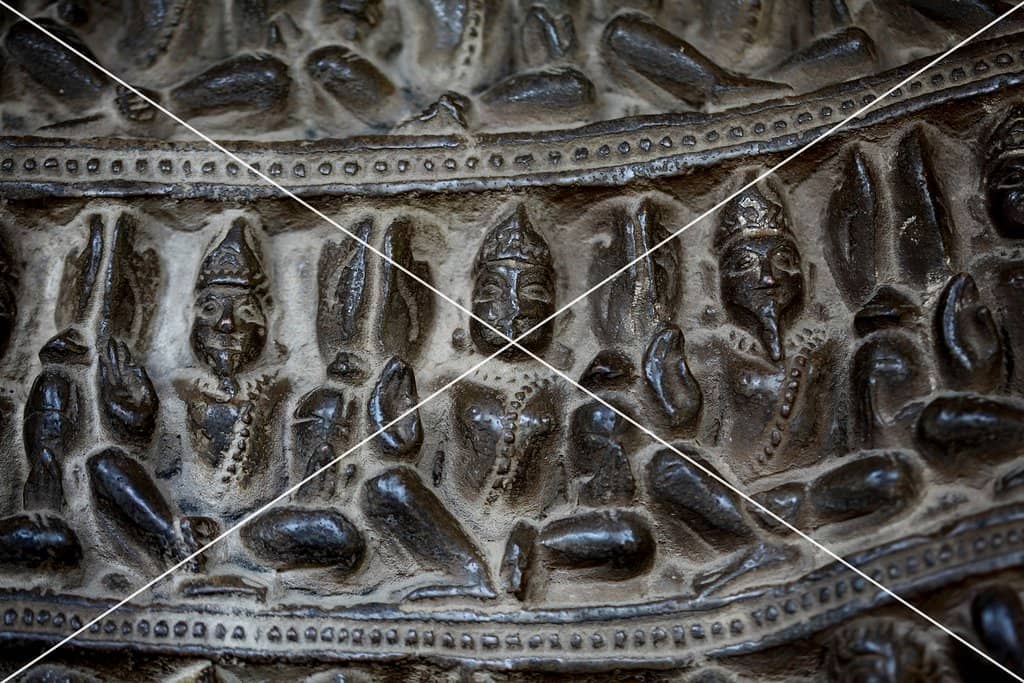
Highlights
Discover the most iconic attractions and experiences
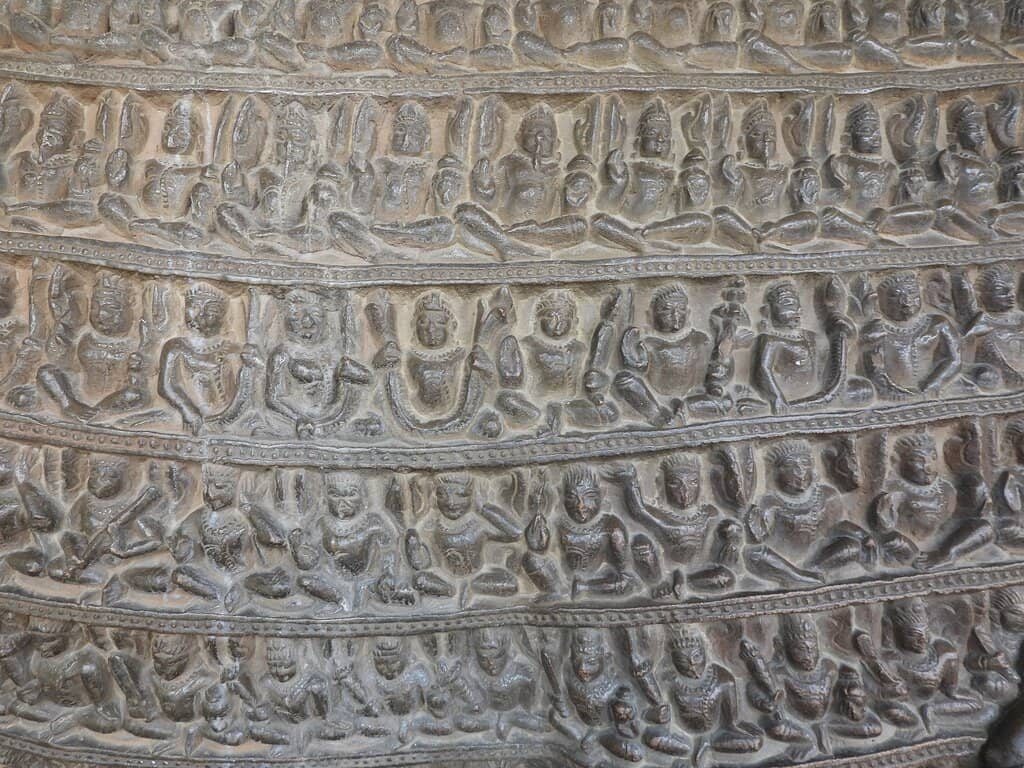
The Colossal Varaha Sculpture
Main Shrine
A massive monolithic sculpture of Varaha, intricately carved with gods, goddesses, and beings. A true masterpiece of ancient Indian art.
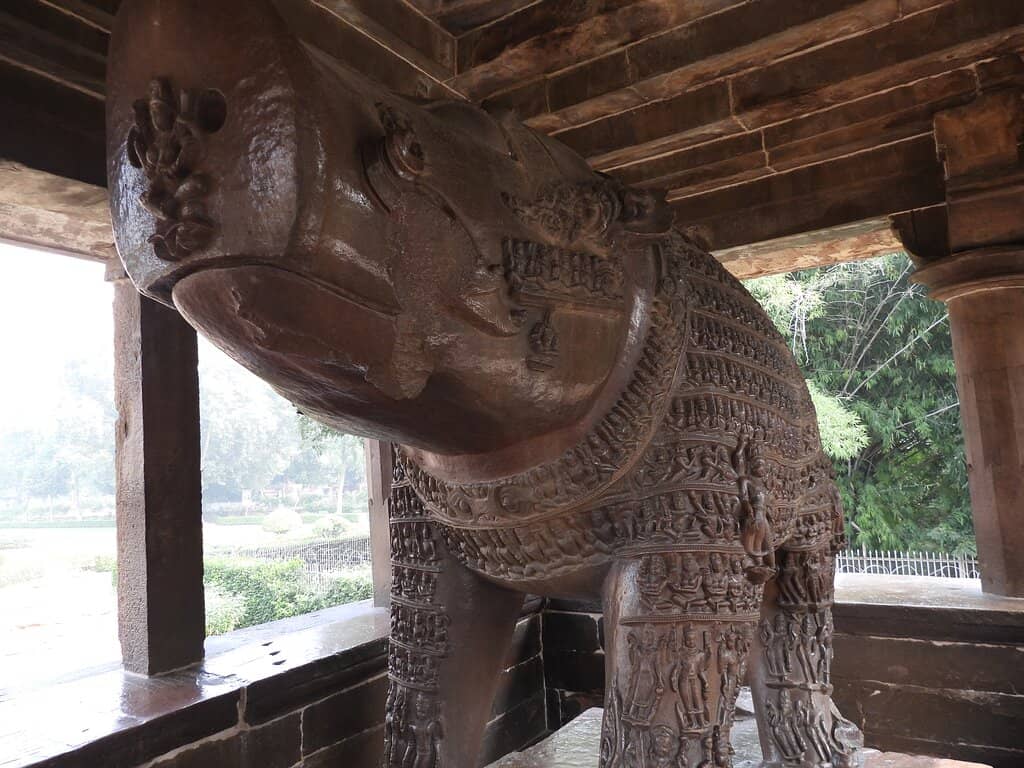
Intricate Body Carvings
Varaha Sculpture
Every inch of the Varaha figure is adorned with detailed carvings, showcasing the exceptional craftsmanship of the Chandela period.
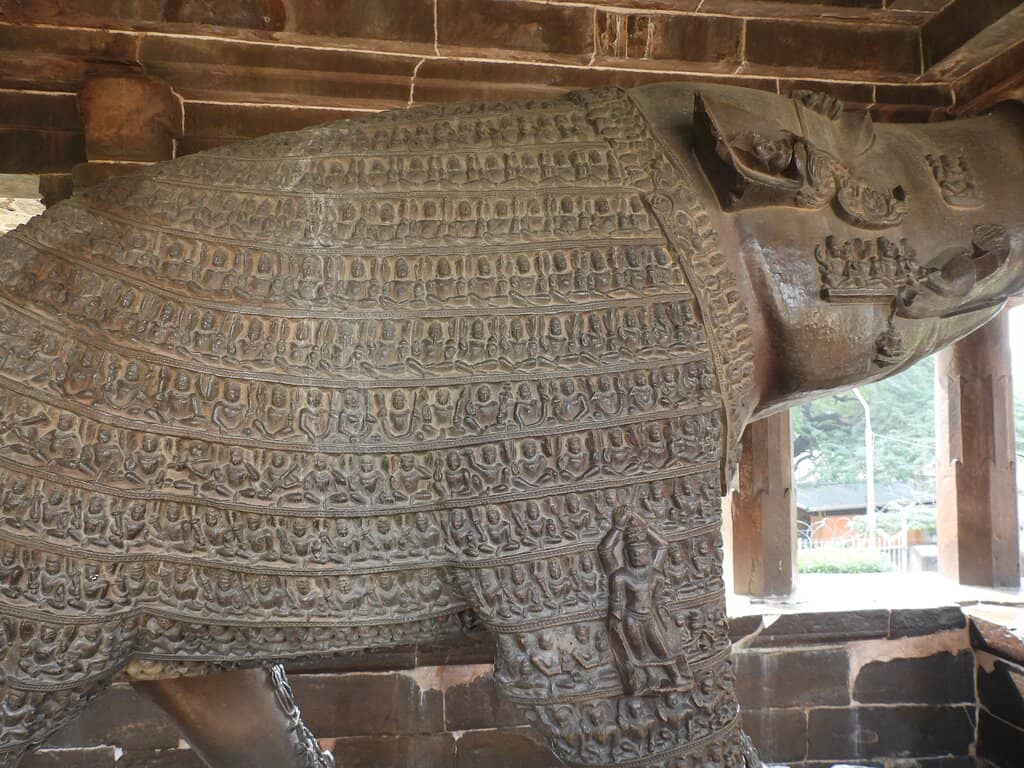
Lotus Flower Ceiling
Shrine Ceiling
A beautifully carved inverted lotus flower adorns the flat ceiling, a testament to the delicate artistry within the shrine.
Plans like a pro.
Thinks like you
Planning Your Visit
Timing Your Visit to Khajuraho
Understanding the Varaha Shrine's Significance
Best Times
Insider Tips
from TikTok, Instagram & Reddit
Wear Comfortable Shoes
You'll be doing a lot of walking around the Khajuraho complex. :athletic_shoe:
Hire a Guide
A knowledgeable guide can bring the history and mythology of the Varaha Shrine and other Khajuraho temples to life. :man_detective:
Visit Early or Late
Beat the heat and the main tourist rush by visiting the Varaha Shrine in the early morning or late afternoon. :sunrise: :city_sunset:
Explore the Whole Complex
The Varaha Shrine is part of the larger Khajuraho Group of Monuments, a UNESCO World Heritage Site. Don't miss the other stunning temples! :world_map:
Tips
from all over the internet
Wear Comfortable Shoes
You'll be doing a lot of walking around the Khajuraho complex. :athletic_shoe:
Hire a Guide
A knowledgeable guide can bring the history and mythology of the Varaha Shrine and other Khajuraho temples to life. :man_detective:
Visit Early or Late
Beat the heat and the main tourist rush by visiting the Varaha Shrine in the early morning or late afternoon. :sunrise: :city_sunset:
Explore the Whole Complex
The Varaha Shrine is part of the larger Khajuraho Group of Monuments, a UNESCO World Heritage Site. Don't miss the other stunning temples! :world_map:
What Travellers Say
Reviews Summary
Visitors are consistently impressed by the Varaha Shrine's monumental monolithic sculpture, marveling at the intricate carvings that cover its entire body. Its historical significance as part of the Khajuraho UNESCO World Heritage Site and its representation of Vishnu's Varaha avatar are highly appreciated. Some find the shrine itself modest in scale compared to other Khajuraho temples, but the artistry of the central sculpture is universally praised.
"Varaha Temple
The Shrine is facing Lakshmana Temple ie. West. The Shrines was constructed on an elevated level.
ARCHITECTURE
The Varaha is in standing posture, with about 674 figures of gods and goddesses, humans, animals and all other beings carved on the body of Varaha. Between the feet of Varaha is the image of serpent Seshnag, the symbol of Eternity Also visible are the feet of a broken figure of Bhudevi. Between its nostrils is the four armed Saraswati holding the Veena in one pair of hands. The highly polished monolithic image in yellow sandstone measures 2.5 m in length and 1.5 m in height. The ceiling of this temple is one of the finest with three rows of petals forming an elaborately carved inverted lotus.
HISTORY AND INSCRIPRIONS
Since this Varaha Shrine is just opposite to Lakshmana temple, believed to be constructed during the same period ie. Between 900-925 CE, by Lakshavarman of Chandela Dynasty.
LEGENDS
Facing the Lakshmana Temple, this temple depicts Vishnu in the form of Vishwa varaha, his third incarnation in which he took the form of a wild boar to rescue Mother Earth (Bhudevi) from beneath the ocean where she had been hidden by the demon, Hiranyaksha. According to the Vishnu Purana, when Vishnu assumed this form, the entire universe manifested itself in this form."
Veludharan
"The Varaha Temple at Khajuraho is a captivating site that highlights the unique blend of art, mythology, and spirituality found within the Khajuraho Group of Monuments. Located in the Western Group of Temples, this temple is part of the UNESCO World Heritage Site, inscribed in 1986 due to its exceptional architectural beauty and its representation of the Chandela dynasty's cultural achievements.
What makes the Varaha Temple stand out is the monumental image of Varaha, the boar avatar of Vishnu, enshrined within the temple. This colossal monolithic sculpture portrays Varaha in his purely animal form, a powerful symbol of the divine rescuing the earth from chaos. The detailing of the boar figure is nothing short of remarkable, reflecting the artistry and craftsmanship of the time. Every inch of the sculpture is adorned with intricate carvings, making it a masterpiece of ancient Indian art.
The temple itself, though smaller in scale compared to other temples at Khajuraho, holds immense historical and spiritual significance. Its architectural style is simple yet elegant, perfectly complementing the grandeur of the Varaha image it houses. The surrounding complex further adds to the temple's charm, as it is part of the larger Khajuraho complex, known for its stunning carvings, serene atmosphere, and historical richness.
Visiting the Varaha Temple is a must for those who wish to explore the diverse representations of divine mythology and witness the artistic excellence of ancient India. The temple not only offers insight into the religious devotion of the Chandela dynasty but also provides a profound connection to India's cultural and spiritual legacy."
Arvind Otta
"The Varaha shrine, built on a lofty plinth, is essentially similar in design to the Lalguan Mahadeva Temple, but is simpler and more modest. It is an oblong pavilion with a pyramidal roof of receding tiers, resting on fourteen plain pillars and enshrines a colossal monolithic (2.6 m long and 1.7 high) image of Yajna Varaha (incarnation of Vishnu) which is exquisitely finished to a glossy lustre and is carved all over with multiple figures of gods and goddesses. The flat ceiling of the shrine is carved with a lotus flower of exquisite design in relief. The shrine built entirely of sandstone is assignable to circa 900-925. (Information from ASI)"
Vikas Singh
What People Like
What People Dislike
Frequently Asked Questions
🚇 🗺️ Getting There
The Varaha Shrine is located within the Khajuraho Group of Monuments in Madhya Pradesh, India. The nearest airport is Khajuraho Airport (HJR), with flights from major Indian cities. Khajuraho also has a railway station connected to major cities. From the town, auto-rickshaws and taxis are readily available to reach the temple complex.
Yes, the Varaha Shrine is part of the well-maintained Khajuraho Group of Monuments. It's situated on an elevated level and is accessible by walking paths within the complex.
Auto-rickshaws and cycle-rickshaws are common and affordable for getting around Khajuraho and visiting the different temple clusters. Many visitors also choose to walk between the Western Group of Temples, where the Varaha Shrine is located.
🎫 🎫 Tickets & Entry
Yes, a composite ticket is required to enter the Khajuraho Group of Monuments, which includes the Varaha Shrine. This ticket is valid for the entire day and allows access to multiple temples within the complex.
The Khajuraho Group of Monuments, including the Varaha Shrine, is generally open from sunrise to sunset. It's advisable to check the latest timings with the Archaeological Survey of India (ASI) or local authorities before your visit.
As a protected monument, visitors are expected to respect the site. Avoid touching the sculptures, littering, or smoking within the premises. Photography is generally allowed, but check for any specific restrictions.
Online ticket booking options may be available through official government tourism websites. This can save you time queuing at the ticket counter, especially during peak season.
📸 📸 Photography
Photography is generally permitted inside the Varaha Shrine and the wider Khajuraho complex. However, flash photography might be restricted to protect the ancient carvings. Always look for signage or ask local guides.
The best times for photography are early morning and late afternoon when the sunlight creates beautiful golden hues and softer shadows, highlighting the intricate carvings. Avoid midday sun for better results.
Focus on capturing the sheer scale and detail of the monolithic Varaha sculpture. The intricate carvings on its body and the lotus ceiling are prime subjects. The shrine's position opposite the Lakshmana Temple also offers interesting photographic perspectives.
🎫 🏛️ History & Architecture
The Varaha Shrine is believed to have been constructed between 900-925 CE, during the same period as the Lakshmana Temple, by Lakshavarman of the Chandela Dynasty.
The shrine is built on a lofty plinth and is simpler and more modest in design compared to some other Khajuraho temples. It features an oblong pavilion with a pyramidal roof of receding tiers, resting on fourteen plain pillars.
The Varaha avatar is the third incarnation of Lord Vishnu, where he took the form of a wild boar to rescue Mother Earth (Bhudevi) from the ocean depths, symbolizing divine intervention and the restoration of cosmic order.
The monolithic sculpture is unique for its colossal size and the fact that its entire body is carved with approximately 674 figures of gods, goddesses, humans, and animals, representing the Vishwa Varaha form.
For Different Travelers
Tailored advice for your travel style
👨👩👧 Families with Kids
Make the visit engaging by turning it into a treasure hunt for specific carvings. The open spaces within the temple complex are also good for kids to move around. Remember to carry water and snacks, and consider visiting during cooler parts of the day to ensure comfort.
🏛️ History Buffs & Art Enthusiasts
Pay close attention to the architectural style, the placement of the shrine opposite the Lakshmana Temple, and the historical context provided by inscriptions. Engaging a knowledgeable local guide can significantly enhance your understanding of the shrine's historical significance and artistic nuances.
Deep Dives
In-depth insights and expert knowledge
The Artistry of the Varaha Sculpture
Beneath the Varaha's feet lies the image of the serpent Seshnag, symbolizing eternity, and the feet of a broken figure of Bhudevi, the Earth goddess, whom Varaha rescued. Between its nostrils, a four-armed Saraswati is depicted holding a Veena. The sheer density and precision of these carvings are a testament to the skill and dedication of the artisans. The sculpture is a visual narrative, depicting the divine act of rescuing the Earth and the cosmic significance of Vishnu's avatar.
This artistic marvel is not just about religious iconography; it's a profound statement on the cultural and spiritual beliefs of the era. The Varaha sculpture at Khajuraho is a prime example of how religious devotion and artistic excellence converged during the Chandela period, making it a highlight of the UNESCO World Heritage Site.
Historical Context and Chandela Dynasty
The construction of these temples reflects the dynasty's deep devotion to Hinduism and Jainism, as evidenced by the diverse temples within the Khajuraho complex. The Varaha Shrine, dedicated to a prominent avatar of Vishnu, showcases the Chandela rulers' commitment to preserving and propagating religious narratives through monumental art. Its placement opposite the Lakshmana Temple suggests a deliberate architectural planning within the Western Group of Temples.
As part of the Khajuraho Group of Monuments, inscribed as a UNESCO World Heritage Site in 1986, the Varaha Shrine contributes significantly to understanding the cultural achievements and religious landscape of medieval India. The inscriptions and architectural style provide invaluable insights into the Chandela era's societal structure, artistic sensibilities, and spiritual practices.



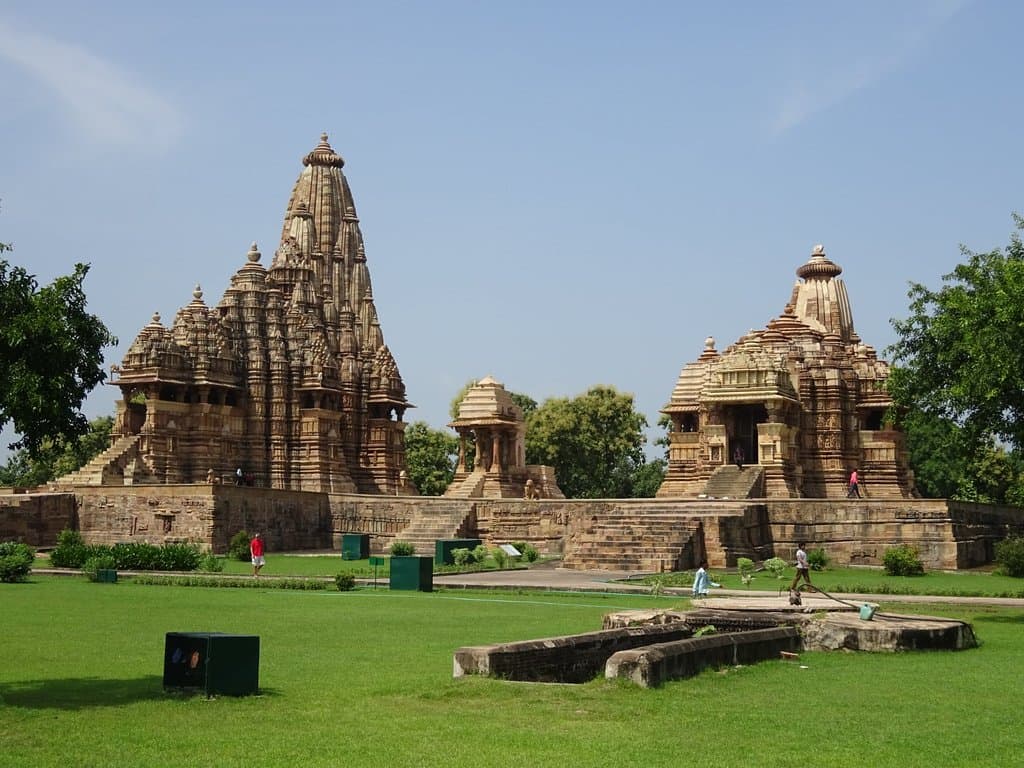
Social
from TikTok, Instagram & Reddit